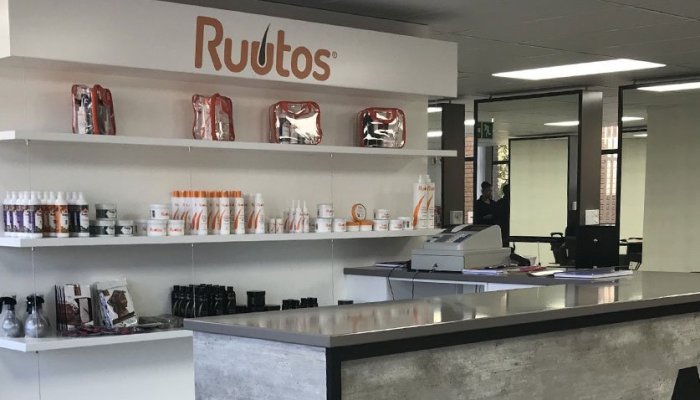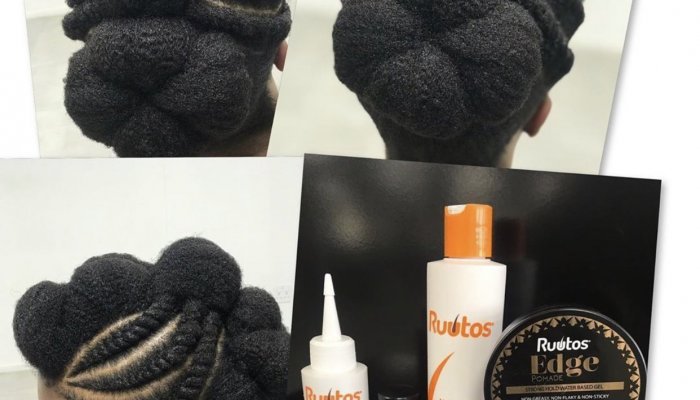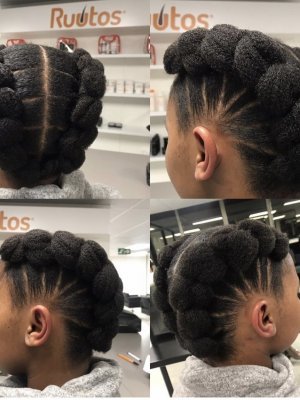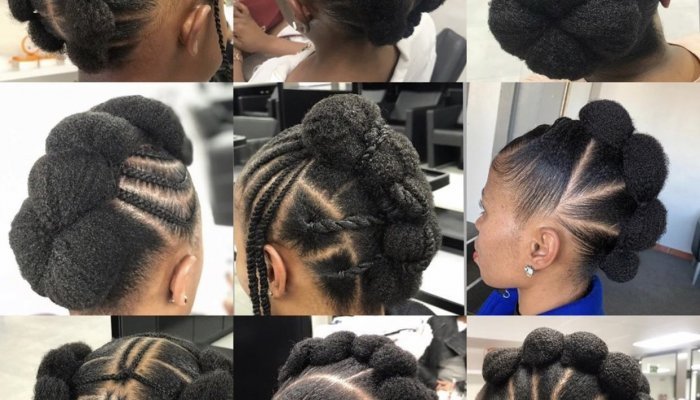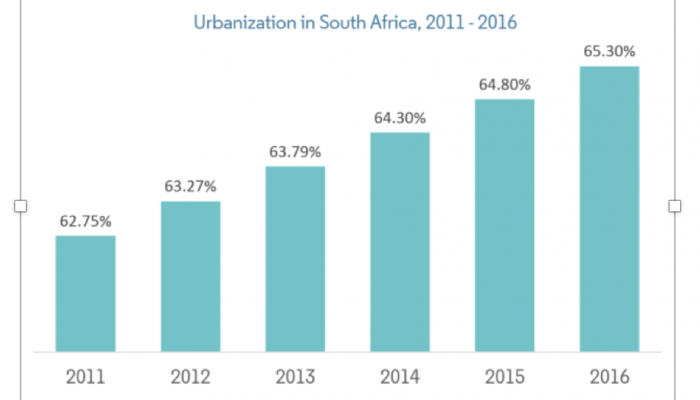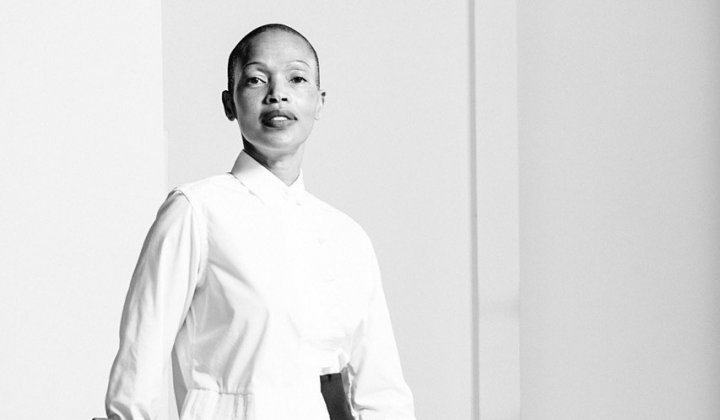Natural hair has gained popularity in the black community in recent years, after decades of the use of harmful chemicals to straighten hair. More and more women are ditching the chemicals in favour of a more natural approach to hair care.
With market growth comes a high level of competition...
A 2018 report from Mintel, a London-based market research firm, states that 40% of black women have turned to both chemical-free and no-heat styling, while an additional 33% of black women still prefer heat-styling but have cut out all chemicals.
...women have become more confident about what they have been born with.
According to Mordor Intelligence, a market research company, the South African haircare market will be worth just under US$500 million by 2024, registering a compound annual growth rate (CAGR) of 1.36%, over the forecast period (2019-2024). The report further says that in South Africa, with a population of about 55 million population and a shifting demographic profile, the haircare market is positively correlated with a rise in disposable income, presenting vast potential in the consumer market.
Mordor Intelligence reports that the South African haircare market includes various haircare products, such as shampoos, conditioners, hair sprays, hair oil, and other hair careproducts, such as hair masks, hair gels, hair serum, color, and various heat protective products. The market is segmented by distribution channel, which includes supermarket/hypermarket, specialty stores, convenience stores, and online retail stores. The natural trend in the South African ethnic haircare segment is on the rise. This owes to a large portion of ethnic consumers moving away from harsh chemical relaxers in favour of less invasive products to manage their curls.
Urbanisation also plays a significant role:
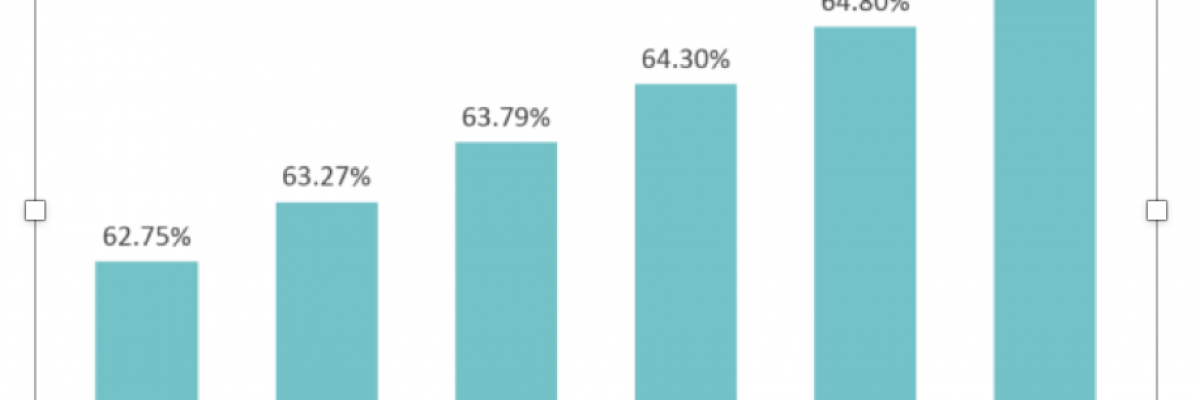
With market growth comes a high level of competition, including numerous global and local players. According to Mordor Intelligence, the key players in the market are trying to gain a competitive advantage over other players via product innovation. Among the big names are L’Oreal Paris Professional, Unilever South Africa, Kao Corporation and Avon.
It seems that South African women prefer more variety in their haircare products, going from braids to weaves, to chemical treatments, to other drastic style changes.
In the past few years, a lot of hype has been created around natural hair and having a beautiful and healthy afro. Co-owner of Ruutos salon, Lucy Okpoko, says natural hair is only hard to manage if one does not get the correct products. Okpoko says one should invest in treating one’s hair on a monthly basis or at least every three weeks. “The more you invest in it by treating it, the easier it becomes to manage,” says Okpoko.
The number of known salons catering for black people is estimated at 40 000, and about 3 000 of these cater for “non-ethnic hair”. The figures most likely exclude informal salons in homes. Okpoko says at Ruutos, the aim is to constantly improve the business to cater to the market as it grows every day. “I am constantly looking at different ways to make our customers happy and the best way is to also invest in training our staff,” says Okpoko. Starting the natural hair business in 2009 with her partner, Ruben Okpoko, the company now has two salons with Midrand being the training academy.
Going natural
According to NaturALL Club, when transitioning from relaxed hair to natural hair, these are the steps to follow:
1. Trim your hair regularly.
2. Avoid products with toxic or drying ingredients.
3. Take the time to learn what your hair needs.
4. Keep your hair moisturised.
5. Find a go-to style that you can master and feel confident in.
6. Deep conditioning is important for everyone, no matter the state or texture of hair, but it is absolutely non-negotiable if you are transitioning.
However, the option of starting afresh is there if transitioning is too much for you. Natural hair activist, Nombulelo Fox, says the main concern that a lot of people have regarding natural hair is hair growth. The most frequently asked question has always been, ‘How can I grow my hair faster?’. What people don't realise is that not everyone's hair grows at the same rate and it would be unfair to give instructions to someone to help them grow their hair. “What I would suggest is helping them find a suitable routine for their specific hair to foster that growth. It also helps to redirect people to salons for consultations, because they help you understand your hair in terms of your type, texture and porosity,” says Fox.
The natural hair market is nothing new. South Africa’s black haircare industry is estimated to be valued at R9.7 billion per year, and the Professional Hair Care Market SA 2010 report shows that it was considered the largest in Africa nine years ago. The pricing of natural hair products is also expected to be slightly different from that of relaxed hair. Is it expensive? Okpoko says, “styling natural hair isn’t like styling relaxed hair. It takes longer and more products are used; hence it is rather expensive to treat and/or wash natural hair. Most stylists do not want to do natural hair; we say we will do it but we will also charge you accordingly.”
Costs
According to Let it go Afro, there are two main reasons why natural hair products are expensive. Firstly, the ingredients in natural products come from the earth out of someone’s garden or orchard. The gardener must put more time and effort into harvesting the ingredients. Secondly, wearing natural hair has grown in popularity. The makers of natural hair products are trying to capitalise on the popularity of natural hairstyles.
...natural hair is only hard to manage if one does not get the correct products...
Fox echoes that natural hair products are expensive because the market is still growing. “Most of the products available on the market are international brands, which also come at a cost. Locally produced products are also expensive. Although there are some affordable options, most of them are pretty pricey, depending on the demand and mostly how big the brand is as well,” explains Fox.
However, it’s not all doom and gloom. Fox says although natural haircare products are expensive at first, they become cheaper over time because you end up figuring out what your hair needs. This helps eliminate unnecessary costs that you would have incurred at the beginning of your haircare journey.
“People end up buying an entire range of six products only for them to use two. This does damage the pocket a bit,” says Fox. So how does one choose a product? In most cases, if one gets a shampoo, the cheapest would be the most appealing, but expensive would mean it is more effective. So, which one does one go for? Here are three ways to select your products, especially if it is your first time:
· Research: When you research, pay close attention to the ingredients, product sizes and price.
· Start low: There is no need to start off with expensive products, especially if you are trying to find something that works for you.
· Ask: If you know anyone who’s natural, ask them what they use. It’s great to get an opinion from someone you know because you can get a more personal idea of how the product works for them.
“Always read the ingredients from each bottle of the products you want to use. All of the ingredients must be natural,” says Okpoko. As far as ingredients are concerned, Fox says, “I look for products that do not contain sulfates, mineral oil and parabens. These are key things to look out for when deciding on products. Relaxed products have these ingredients, which is why it is important to always read the fine print before deciding on what to buy.” Fox adds that you also have to look for products that contain aqua (water) as a main ingredient because natural hair requires moisture no matter what your porosity is.
Ruutos salon has made a wide range of products to cater for natural hair. Okpoko says because hair needs a lot of moisture, they decided to come up with products that will not only make it moist, but lock in all the moisture. Okpoko says because she and her partner have a background in medicine, it was easier to think of different methods and find ways to improve their products. The decision is also influenced by customer feedback.
Natural haircare products have eliminated several issues, including scalp problems and having thin hair due to using harsh chemicals. In totality, women have become more confident about what they have been born with. Okpoko says women should embrace their hair and there is always an option for maintaining it. “Someone will always be there to help you wash, treat and style your hair,” said Okpoko.
Thinking of starting up your own natural haircare business? Here are four aspects to remember:
· Stand out – there are quite a number of salons available and the last thing you want to do is to copy one that is a street away from you and already has a big customer base.
· Do your research – do you understand the business, and do you think getting into the haircare market is an investment?
· Create a client base – make sure you are talking to people. Social media is your friend and is the first place to create a client base.
· Location – placing your business in the right place is very important because you can’t be a new business and be hidden. Make sure you are visible.
INSTA-Natural
In 2016, the world’s most popular internet star in the list of top-earning YouTube stars was taking home over US$15 million (R204 million). YouTube has also become a major aid for anyone jumping on to the natural hair wagon. Look at these channels to help in terms of starting a channel for extra bucks or even to familiarise yourself with what is happening in the market that you are trying to tap into:
- My FRO & I
- Fox and the FRO
- Fanta Diop
- Yolz Channel


